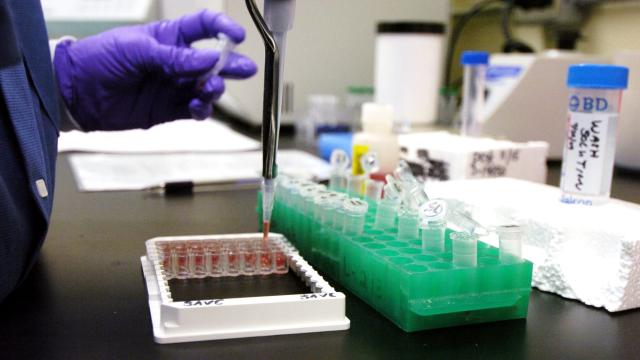The peer review process for scientific publications is a tedious and trusted mechanism by which papers are determined credible sources of information or not. While “peer reviewed” isn’t synonymous with conclusive, it’s long been a stamp of approval for other scientists and the public to weed out low-quality research. But a new requirement from the federal government effectively undermines these studies by forcing researchers to include a disclaimer labelling their studies as “preliminary.”
According to the Washington Post, the United States Department of Agriculture sent a memo to researchers at the department in July of last year that outlined a number of new requirements, including a statement that had to be added—in the same-sized font as the author names—that stated, “The findings and conclusions in this preliminary publication have not been formally disseminated by the U.S. Department of Agriculture and should not be construed to represent any agency determination or policy.” The Post obtained a copy of the memo, which was reportedly confirmed by the USDA.
This text, that essentially brands carefully reviewed research as “preliminary,” was reportedly the “result of a high-level compromise” that allowed USDA researchers “to publish scientific research without having to get it officially reviewed as representing USDA policy.” It was also supposed to just be “an interim policy,” with a new guideline rolling out in the fall, according to internal communications among department employees obtained by the Post. But a new guideline never happened, the “interim” one was reportedly never announced to the public, and the disclaimer has reportedly already been inserted into a number of existing peer-reviewed journals.
“Any scientist reading a journal, seeing that, would be very confused by this statement,” Ed Gregorich, editor of the Journal of Environmental Quality, told the Post.
That’s likely because a peer-reviewed journal has been assessed by scientists who are experts in the related subject and who decide whether research meets the standards to be published. The process oftentimes takes over a year and is highly selective—the journal Science publishes less than 8 per cent of submitted articles, and The New England Journal of Medicine publishes only 6 per cent, according to Understanding Science, a website from the University of California, Berkeley funded by the National Science Foundation.
“Since scientific knowledge is cumulative and builds on itself, this trust is particularly important,” the Understanding Science website states, referencing peer-reviewed articles. “No scientist would want to base their own work on someone else’s unreliable study! Peer-reviewed work isn’t necessarily correct or conclusive, but it does meet the standards of science. And that means that once a piece of scientific research passes through peer review and is published, science must deal with it somehow — perhaps by incorporating it into the established body of scientific knowledge, building on it further, figuring out why it is wrong, or trying to replicate its results.”
That’s why forcing researchers to add a glaring disclaimer suggesting their study is somehow less trusted than their peers’ isn’t just a disservice to the scientists, but also to their fields of study.
“We hope that it’s not interfering with the dissemination of scientific findings that are important for the public,” Christine McEntee, director of the American Geophysical Union, told the Post.
